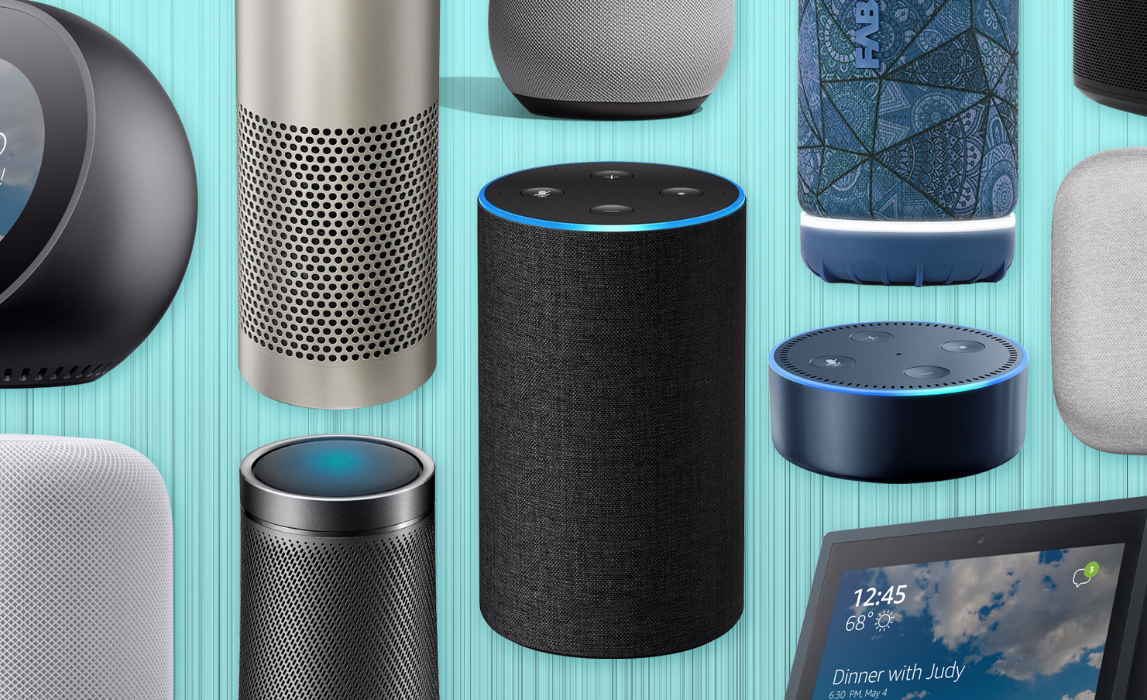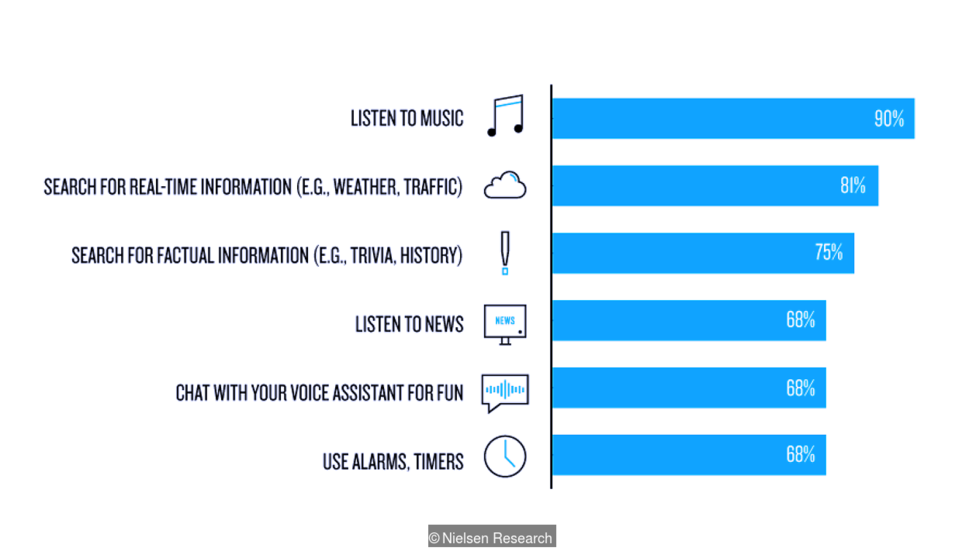Smart speakers a slow growth for music discovery in Australia

When it comes to discovering new music, Australians cite radio and smartphones as the main platforms of choice.
In a voice-activated world, smart speakers will join the list.
A Nielsen report in September 2019 said that the most popular use of smart speakers for Australians is listening to music, at 90%.
It beat information for weather updates (81%), factual info and trivia (75%), listening to news (68%), chat with the voice assistant for fun (68%) and setting alarms and timers (68%).
But take-up is relatively slow. Only 14% of Aussies (2.9 million) own one – and the majority are millennials.
There are 949,000 owners in NSW, followed by Victoria (900,5520), Qld (608,749), WA (229,092), SA (124,508), ACT (46,115), NT (33,068) and Tasmania (31,168).
79% choose Google Home, then Amazon Echo (7%) and Apple Home Pod (3%).
Only a quarter of owners use their device every day.

Nevertheless, Nielsen commented, “There are commercial opportunities for marketers.
“Overall, the growing adoption of smart speakers is a trend to keep tabs on.”
Why not? The potential for growth is huge. There is a definite link between the easy use of smart speakers and increased music consumption.
By the end of 2019, global sales are expected to hit 200 million units, and Deloitte Global projects the sector’s worth then at US$7 billion.
This makes the smart speaker the fastest-growing connected device category in the world.
By 2022, 55% of US households will own one (said Jupiter Research), meaning 175 million devices in 70 million homes.
Deezer reported that use of voice controls to play music on its service rose by 471% between 2017 and 2018.
More personalised discoveries and plays lead to greater listening time on smart speakers.
OVERCOMING CHALLENGES
Smart speakers were not created with the music biz in mind.
Tech companies based music searches by voice assistants around what was playing on mainstream radio – and, unintentionally, usually balanced against indie labels.
Record labels increased the appeal for their customers by incorporating lyrics-as-metadata and actively moving towards voice assistants identifying catalogue titles.
They are hiring experts to reverse engineer algorithms around digital aids and work out which tags will allow them to apply the most relevant and useful data to their content
They have realised that voice assisted discovery depends on song titles or artist names not being hard to pronounce or titles so commonplace that they slip through the cracks when dozens are potentially offered in searches.
How the latter would work against artists whose names are not Smith or Jones remains to be seen, but could be a disturbing consequence.
Tech companies are offering song identification features.
The first was Amazon which in July introduced Song ID which let Alexa its voice assistant identify a title and artist before it is played, in addition to its on-screen IDs.
Amazon Music also introduced two initiatives to uncover new tracks and artists – Ones To Watch which tips new talent, and the Weekly Chat program which gives little known artists the chance to reach a broader audience.
JUST BLEW IN FROM INDIE CITY
Earlier this year, before AIM’s Connected conference in London, Music Ally (https://musically.com/2019/03/28/indies-amazon-smart-speakers-music/) spoke to members of a panel on indie sector’s opportunities with smart speakers.
Among the positive comments were:
Gérald Youna, digital accounts manager at Beggars Group: “Smart speakers are an effective funnel into purchasing a music subscription for a largely mainstream audience, one which might not have tried one otherwise.”
Athena Koumis, head of music culture, North America at Xite: “What’s most exciting about smart devices is the opportunity to super-serve every music fan no matter their taste.
“Smart devices have ushered in new ways of interacting with music that were not possible even a few years ago.”
Youna on marketing opps for indies: “It can be a track by track album commentary, liners over an exclusive playlist, a podcast-like show, or a dedicated ‘skill’ for example.”
Deezer’s Deezer’s VP of hardware partnerships, Riad Hawa: “Smart speakers have no screens or visual prompts, making it a pure auditory experience.
“There’s an opportunity for innovative labels, artists and streaming services to change how they approach and encourage music discovery.
“It’s still a very young field and we’re going to see some cool solutions going forward.”

































